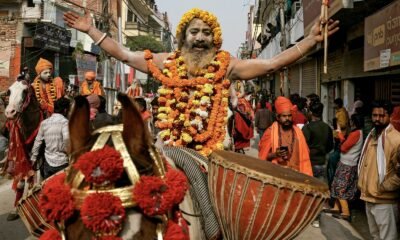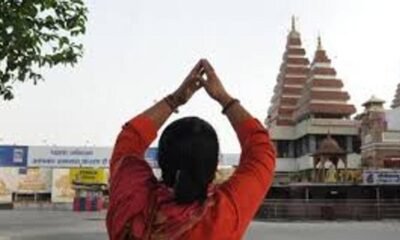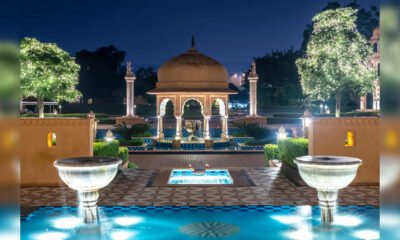Spiritual Travel
A Spiritual Journey to Maha Kumbh 2025 | Lifestyle News
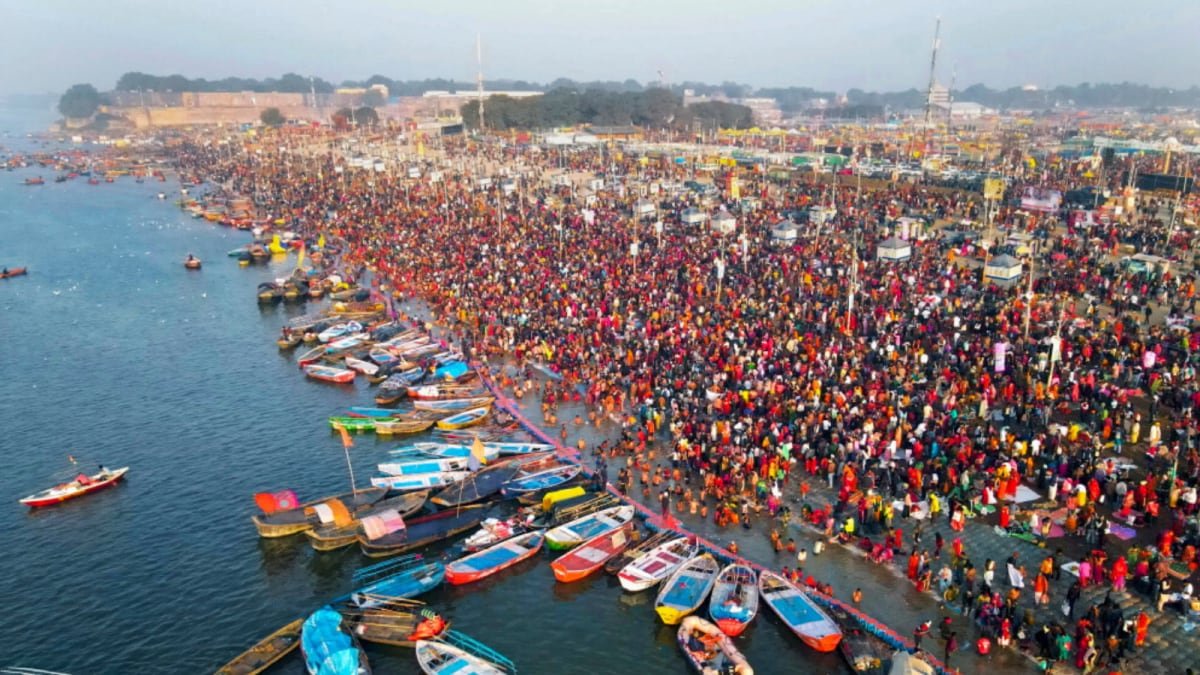
Last Updated:
Maha Kumbh wasn’t just about rituals and holy dips—it was about devotion, humanity, and the deep-rooted tradition of serving others.
Mahakumbh Mela 2025, which started on January 13, will run until February 26. (PTI)
As I stepped onto the sacred grounds of the Maha Kumbh Mela 2025 in Prayagraj, a wave of devotion and energy surrounded me. Millions of pilgrims had gathered to take the holy dip at the Triveni Sangam—the confluence of the Ganges, Yamuna, and Saraswati. The air was thick with chants, temple bells, and the scent of incense, a powerful reminder of India’s deep spiritual roots.
Navigating through the sea of devotees, I made my way to the banks of the Sangam. The sight was nothing short of mesmerizing—thousands of pilgrims immersed themselves in the sacred waters, seeking purification and divine blessings. It was a humbling experience to witness such unwavering faith and devotion.
After my own dip in the holy waters, I felt a renewed sense of calm and gratitude. However, hours of walking and queuing had left me exhausted and hungry. That’s when I stumbled upon ISKCON’s Mega Kitchen, an initiative in collaboration with the Adani Group to provide free meals to devotees.
Curious, I followed the aroma of freshly prepared food and reached the massive kitchen setup near Khusrobagh. The scale of the operation left me in awe—three fully functional kitchens working tirelessly to feed over 50 lakh pilgrims throughout the festival. I was greeted warmly by volunteers who offered me a plate of Mahaprasad. The meal was simple yet nourishing: dal, sabzi, chapati, and a sweet treat of halwa. What fascinated me most was the sustainability aspect—the food was prepared on traditional clay stoves using wood and cow dung cakes, with no plastic in sight.
I spoke to Dr Madhukant Das, Director CSR, ISKCON Dwarka, who explained how ISKCON’s team, including former five-star hotel chefs turned devotees, had orchestrated this grand effort. Their experience during the COVID-19 pandemic had prepared them well, and their efficiency was evident. A single chapati machine was producing 10,000 rotis an hour, ensuring a seamless food supply.
As I finished my meal, I couldn’t help but feel grateful for this initiative, which not only provided nourishment but also upheld the spirit of selfless service. Walking away, I reflected on how Maha Kumbh wasn’t just about rituals and holy dips—it was about devotion, humanity, and the deep-rooted tradition of serving others.
My journey to Maha Kumbh 2025 had been a spiritual awakening, and witnessing ISKCON’s Mega Kitchen was a testament to the power of faith in action. As I left the mela grounds, I carried with me not just the blessings of the Sangam but also the warmth of selfless service that makes this event truly divine.
Swati Chaturvedi, a seasoned media and journalism aficionado with over 10 years of expertise, is not just a storyteller; she’s a weaver of wit and wisdom in the digital landscape. As a key figure in News18 Engl…Read More
Swati Chaturvedi, a seasoned media and journalism aficionado with over 10 years of expertise, is not just a storyteller; she’s a weaver of wit and wisdom in the digital landscape. As a key figure in News18 Engl… Read More
view comments
Read More
Spiritual Travel
Bilaspur Set to Transform into Himachal’s Ultimate Adventure and Spiritual Hub
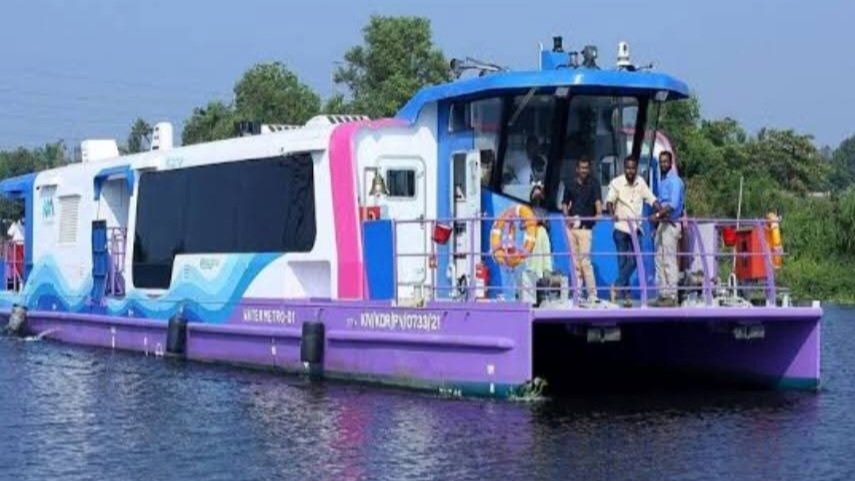
Move over, Manali and Shimla! Bilaspur is gearing up to become the state’s next big tourism hotspot, blending adrenaline-pumping adventures with serene spiritual experiences. The district administration has rolled out ambitious plans to develop water, land, and aerial tourism, promising something for thrill-seekers, pilgrims, and nature lovers alike.
A Sky-High Attraction: The Glass Bridge
Imagine walking on a transparent bridge, suspended high above breathtaking landscapes—Bilaspur’s upcoming Glass Bridge at Bharari will do just that! Designed to rival global attractions, this engineering marvel will offer daredevils an unforgettable experience while giving tourists a reason to extend their stay. Officials confirm the blueprint is ready, and construction will kick off soon after final approvals.
Sailing Through Scenic Routes: The Water Metro
Pilgrims visiting Maa Naina Devi will soon have a faster, more scenic journey thanks to the proposed Water Metro, connecting Bhakra Ghat to Kosariya Ghat. This isn’t just about convenience—it’s about turning travel into an experience. Devotees and tourists can hop on boats, enjoy the tranquil waters, and even transport their vehicles via waterways.
Jet Skis, Kayaking & More: Water Sports at Nakrana
Bhakra Dam’s pristine waters are about to get a lot more exciting! The district is eyeing water sports like jet skiing, kayaking, and boating to attract adventure junkies. The best part? Pilgrims heading to Naina Devi can now add a splash of adventure to their spiritual trip.
Bharari – The New Stopover Destination
Strategically located near Shimla, Manali, and Dharamshala, Bharari will soon feature modern tourist hubs with food plazas, parking, rest areas, and info centers. No more cramped pit stops—just smooth, comfortable breaks for travelers.
Listening to Locals: Boaters Get a Voice
Deputy Commissioner Rahul Kumar made sure local boat operators were heard during inspections, promising quick fixes to their concerns. This people-first approach ensures tourism growth benefits everyone.
Bilaspur’s transformation isn’t just about flashy infrastructure—it’s about jobs for youth, better travel experiences, and putting this hidden gem on India’s tourism radar. With projects set to launch soon, the district is poised to become a must-visit for those seeking adventure, spirituality, and untouched natural beauty.
Spiritual Travel
Shiva Tribe Debuts in Gurgaon’s Tikli-Raiseena: IMPC’s Bold Step to Merge Spirituality, Rural Tourism, and Modern Family Wellness
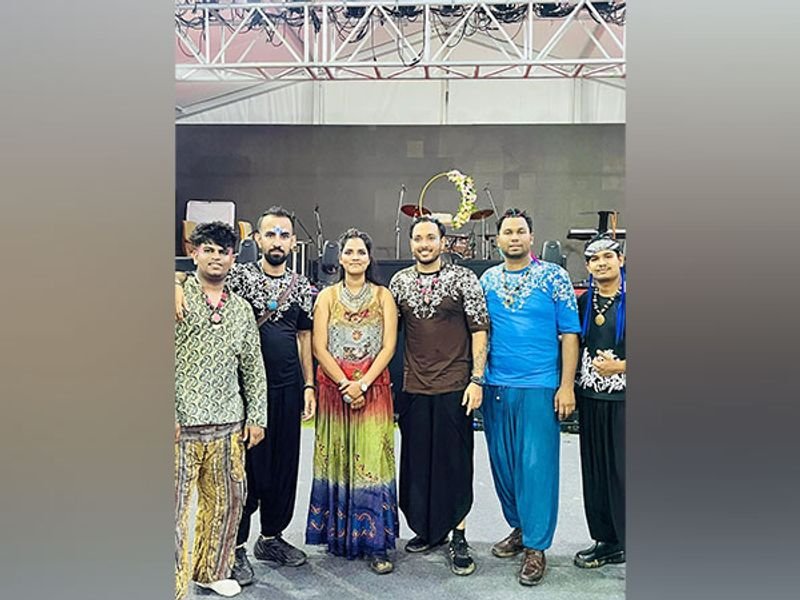
VMPL
New Delhi [India], August 4: In the lush rural landscape of Tikli-Raiseena near Gurgaon, a new chapter in India’s spiritual and rural tourism ecosystem quietly unfolded. The International Mandir Prabandhak Committee (IMPC) launched its ambitious spiritual wellness initiative–Shiva Tribe–an experience-driven, immersive space designed to reconnect Gen Z and modern families with India’s timeless spiritual roots.
Set against the tranquil backdrop of Haryana’s Aravalli fringes, Shiva Tribe is more than a mandir–it is a curated journey of self-discovery, holistic wellness, and cultural revival, seamlessly merging ancient wisdom with modern aspirations. The inaugural three-day Pran Pratishtha Mahotsav was held in July, graced by spiritual luminaries including Pujya Shri Sudhanshu Ji Maharaj, Pujya Shri Dayanand Ji Maharaj, and dignitaries such as Haryana’s former Minister Shri Om Prakash Dhankar. Business leaders, rural development advocates, and spiritual patrons attended in significant numbers–signaling a rising interest in faith-based tourism models.
Spiritual Tourism: India’s Growing Wellness Sector
India’s spiritual tourism market is undergoing a silent revolution. According to the Ministry of Tourism, the wellness and spiritual tourism segment is projected to reach USD 30 billion by 2028, growing at a CAGR of over 10%. With over 330 million domestic religious tourists recorded annually and rising international interest in authentic Indian experiences, initiatives like Shiva Tribe have the potential to create high-value, low-impact tourism models in rural belts–generating employment, fostering entrepreneurship, and revitalizing local economies.
“In today’s fragmented lifestyle, families are searching for meaningful escapes–not just vacations. Shiva Tribe is that sacred pause–a place to reconnect, reflect, and realign, together,” said Dr. Preet Sandhuu, mentor of the project and a key voice in India’s contemporary spiritual movement.
A New Blueprint: Spirituality Meets Community Living
Unlike traditional spiritual centers, Shiva Tribe offers a complete spiritual-eco retreat–including weekend live devotional music by its in-house ‘Shiva Tribe Band’, yoga sessions, mantra-infused meditations, Vedic rituals, and stay facilities for families. It’s a full-circle experience designed to inspire urban youth and families alike to step into a more conscious, value-driven lifestyle.
“Here, spirituality is not a sermon–it’s an experience,” said Shri MP Singh, project visionary and founder of ShivaTribe. “We want to build a network of such community-driven centers across rural India, using temple heritage as a catalyst for rural rejuvenation and youth engagement.”
Rural Regeneration Through Faith
The Tikli model aligns with India’s rural tourism policy goals by transforming underexplored rural regions into mindful tourism destinations. With over 60% of India’s population residing in villages, initiatives like this leverage India’s spiritual capital to promote rural entrepreneurship, handicrafts, organic farming, and ecotourism–creating a sustainable rural economy rooted in culture and community.
IMPC’s Broader Mission
The International Mandir Prabandhak Committee (IMPC), known for initiatives like the Mahasangam Yatra, Trisul Yatra and Shiv-Shakti Kendras, is rapidly becoming a bridge between India’s ancient temple traditions and its digital future. Its work focuses on temple modernization, spiritual leadership development, and community revival–backed by collaborations with scholars, saints, and civic leaders.
By anchoring the Shiva Tribe initiative in Tikli, IMPC demonstrates how faith-based community models can attract tourism, foster economic inclusion, and support national goals like ‘Viksit Bharat’ and ‘Digital Bharat’.
Shared by
(ADVERTORIAL DISCLAIMER: The above press release has been provided by VMPL. ANI will not be responsible in any way for the content of the same)
(This content is sourced from a syndicated feed and is published as received. The Tribune assumes no responsibility or liability for its accuracy, completeness, or content.)
Spiritual Travel
10 oldest temple towns in India for spiritual getaways – The Times of India
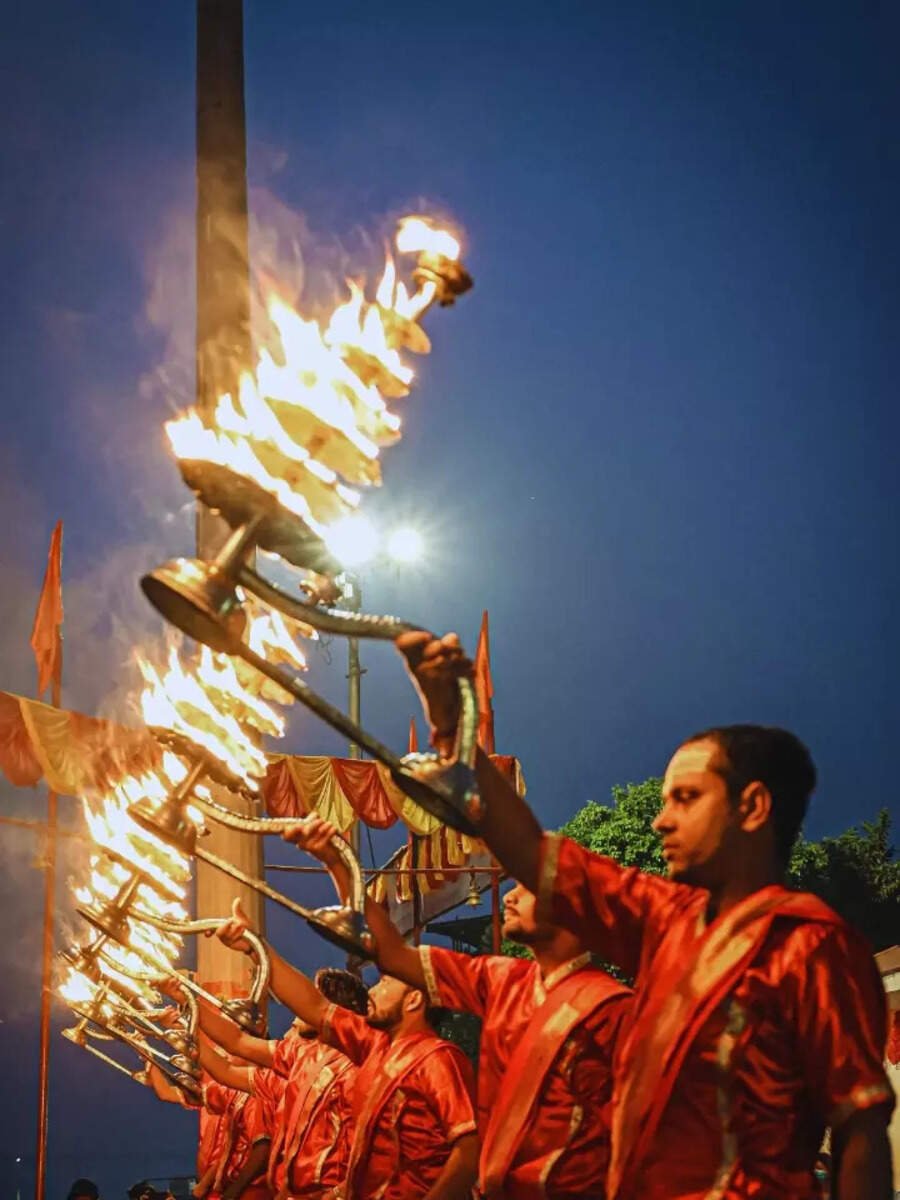
10 oldest temple towns in India for spiritual getaways The Times of India
Source link
-

 Brand Stories2 weeks ago
Brand Stories2 weeks agoBloom Hotels: A Modern Vision of Hospitality Redefining Travel
-

 Brand Stories1 week ago
Brand Stories1 week agoCheQin.ai sets a new standard for hotel booking with its AI capabilities: empowering travellers to bargain, choose the best, and book with clarity.
-

 Destinations & Things To Do2 weeks ago
Destinations & Things To Do2 weeks agoUntouched Destinations: Stunning Hidden Gems You Must Visit
-

 Destinations & Things To Do1 week ago
Destinations & Things To Do1 week agoThis Hidden Beach in India Glows at Night-But Only in One Secret Season
-

 AI in Travel2 weeks ago
AI in Travel2 weeks agoAI Travel Revolution: Must-Have Guide to the Best Experience
-

 Brand Stories1 month ago
Brand Stories1 month agoVoice AI Startup ElevenLabs Plans to Add Hubs Around the World
-

 Brand Stories3 weeks ago
Brand Stories3 weeks agoHow Elon Musk’s rogue Grok chatbot became a cautionary AI tale
-

 Asia Travel Pulse1 month ago
Asia Travel Pulse1 month agoLooking For Adventure In Asia? Here Are 7 Epic Destinations You Need To Experience At Least Once – Zee News
-

 AI in Travel1 month ago
AI in Travel1 month ago‘Will AI take my job?’ A trip to a Beijing fortune-telling bar to see what lies ahead | China
-

 Brand Stories2 weeks ago
Brand Stories2 weeks agoContactless Hospitality: Why Remote Management Technology Is Key to Seamless Guest Experiences

